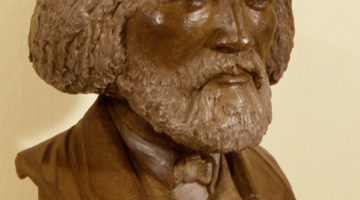 TUPELO, Miss. (AP) — Pop quiz: What were the first animals God created? A look at Genesis 1:20 reveals that before man, before livestock and all the creatures that move along the ground, before the birds in the sky, scripture says God made the waters teeming with fish.
TUPELO, Miss. (AP) — Pop quiz: What were the first animals God created? A look at Genesis 1:20 reveals that before man, before livestock and all the creatures that move along the ground, before the birds in the sky, scripture says God made the waters teeming with fish.
The first disciples Jesus calls – Peter, Andrew, James and John – are fishermen. Compared to the other disciples, scripture gives much insight into the lives of the profession, and the character of the first four.
Today, many dream of retiring and spending their silver years on the calm surface of a lake or pond, waiting for their cork to bob, but the Rev. Allen Simpson, pastor of First Baptist Church in Amory, said in Biblical times, the occupation of fishing was an arduous one.
Fishermen used nets, baskets, spears, hook and line, and in some situations, their bare hands to angle the musht, biny, sardine and other species common to the lake of Galilee.
“Fishing was hard work, especially for fisherman who stood on the bank and had to throw their nets out into the water,” Simpson said. “They weren’t the most influential people. For the most part, they were just ordinary guys doing regular work. They weren’t clean, probably had a smell about them.”
The Rev. Colby Cuevas, associate pastor at the First United Methodist Church in Tupelo, said fishermen certainly weren’t the most polished of individuals.
“In terms of characteristics, the fishermen were gruff and rugged, not social uppities at all,” he said. “But they possessed useful skills. They were most likely multilingual and had some degree of business savvy. Most importantly, they were hard-working.”
Fishing was a common trade around the Sea of Galilee, Cuevas said, where Jesus carried out 85 percent of his ministry. Fishermen usually cast their nets at night, to avoid the scorching heat of the day. In the morning, Cuevas said, they sorted through their haul and sold their spoils at the “fish gate,” or fish market. Fish were the food of common people, so the demand for fish was high and the market large.
“But that also means they had a lot of competition among other fishermen,” Cuevas said. “Each day was kind of a do-or-die situation."
Competitive though it was, Simpson said Zebedee, father of James and John, had managed to establish a successful business with his partners, Andrew and Peter. The gospels tell us their operation was profitable enough to hire employees (Mark 1:20), whose duties could have ranged anywhere from maintaining the equipment to sorting fish.
“Like shepherds, most employment was generational. If your father was a fisherman, you would be a fisherman as well,” Simpson said. “It’s funny to think of Peter as a fisherman. The scripture paints him as impulsive, lacking the patience you might associate with fishing. In fact, the only time you see him catch anything is when Jesus tells him where to throw the net.”
Cuevas said it was also likely that Jesus knew the disciples before the day he called them to follow, but that is hardly the point.
“What’s more interesting is that Jesus comes into their profession. He takes something they have and makes it something they could have never dreamed of,” he said. “That Jesus would call the roughest, most unelegant men should give hope to anyone.”
Rev. Chris McAllily, pastor of Brewer United Methodist Church in Shannon, said the craft of a fisherman may be particularly relevant to the craft of being a disciple. Aside from Matthew, a tax collector for the Romans, very little is known about the backgrounds of the disciples.
“When you talk about a generational occupation like building or fishing, the way you become skilled at that craft is to learn about it – the tools, the language – and then perform that craft day in and day out,” he said.
“In Aristotelian philosophy, the whole point is to be the particular type of person who can do that craft well. Thinking about it that way, the figure of a fisherman may be more interesting than that of a tax collector or a zealot.”
Cuevas said even after Jesus’ crucifixion, the disciples returned to what they knew.
“It’s very powerful that the place Jesus reappears to them and asks them to catch fish to make breakfast is the same place he called them to begin with. He keeps extending the invitation,” Cuevas said. “What better metaphor for the kingdom than a net of fish?”












No Comment